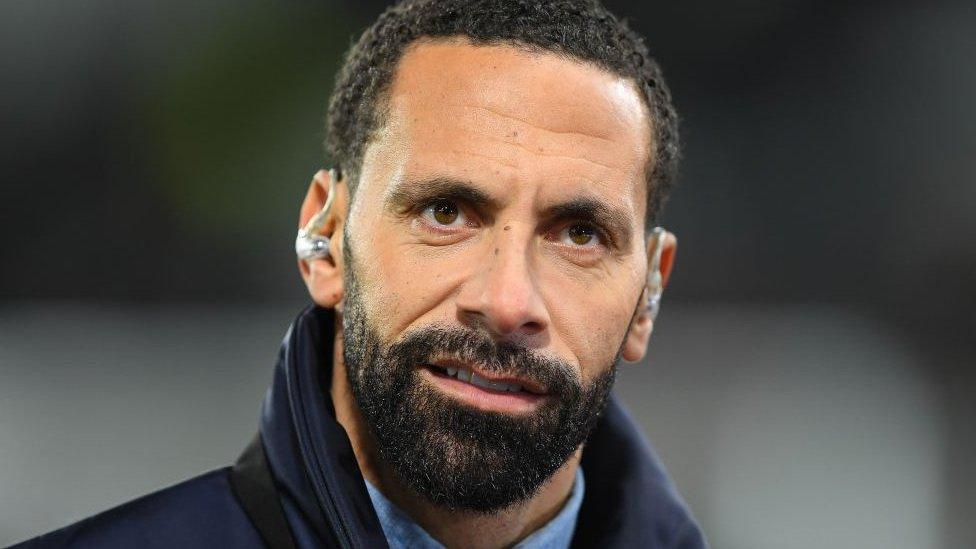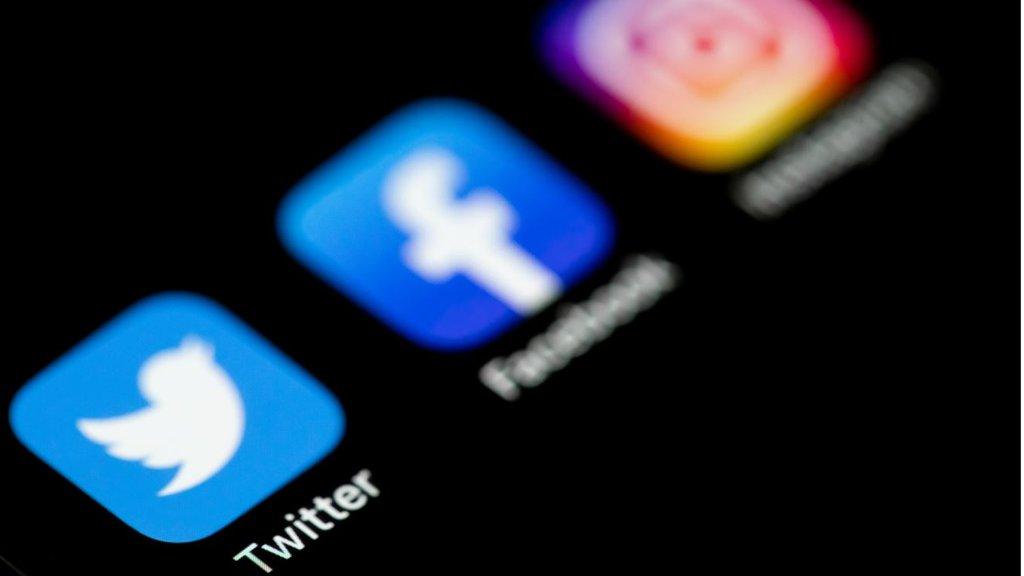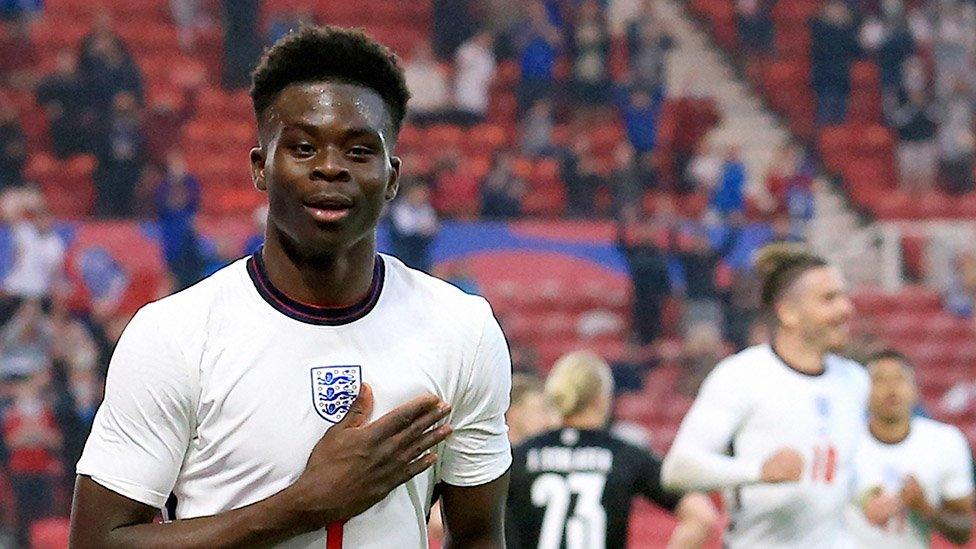Rio Ferdinand: Speak up on mental health, urges ex-Man Utd captain
- Published

Rio Ferdinand says footballers "can be looked at as super heroes" if they speak up about their struggles
Footballers should speak out about their mental health struggles to encourage young people to do likewise, Rio Ferdinand has said.
The ex-Manchester United captain is in Belfast to work as a pundit on Wednesday's Uefa Super Cup game between Chelsea and Villarreal at Windsor Park.
He has also been involved in arranging a match between teenagers from community projects in Northern Ireland.
Big strides had been made on mental health in sport recently, he said.
"In my era talking out about how vulnerable you felt was seen as a weakness so more often than not you didn't speak," he told Good Morning Ulster.
"You shouldered that responsibility and all those feelings yourself and it can crush people."
Allow X content?
This article contains content provided by X. We ask for your permission before anything is loaded, as they may be using cookies and other technologies. You may want to read X’s cookie policy, external and privacy policy, external before accepting. To view this content choose ‘accept and continue’.
The BT Hope United match involving Northern Ireland teenagers - from 14 to 17 years old - took place at Seaview on Tuesday afternoon.
The game was part of a campaign to stop online hate and abuse and will be shown on BT Sport 1 ahead of the Uefa Super Cup match.
"We've tried to make it as near as possible to matchdays we usually have, with the cameras and pundits," said Ferdinand.

Ex-England manager Glenn Hoddle took charge of one of the teams in the BT Hope United match
"I understand it can be a bit daunting for the young people but just treat it like any game you have round your estate or wherever you play football.
"It's easier said that done but just enjoy it, take it all in and play with a smile."
'Speak up if you're struggling'
Ferdinand said it was important for professional athletes to be vocal about their struggles because "you can be looked at as super heroes" and it could help others to talk about their feelings.
"For little Jonny from Belfast to see someone they look up to speak out and say they do feel vulnerable - for him to hear that enables him to speak up and not shoulder responsibility," he said.
"The more people talk out and show it's OK to show that side the better."
Ferdinand said that while football authorities were making the "right noises" about dealing with online abuse there was much more work to be done.
Racist abuse of England players is 'unforgivable' - Southgate
Last month England players Marcus Rashford, Jadon Sancho and Bukayo Saka received racist abuse after the team's defeat in the Euro 2020 final.
All three players missed penalties in the 3-2 shootout loss and were targeted on social media.
"Your phone is right there in front of you all the time," said Ferdinand.
"Any abuse that comes through to you is right there in front of you so being able to be equipped to deal with that is definitely a huge thing.
"In my time the abuse on the pitch switched off - you played for 90 minutes and expected abuse from opposing fans, whether it was tongue in cheek or abuse that was there to hurt your feelings, and put you off playing.
"But in general you played and finished and it was gone - now I feel for the young players as social media is part of everyone's life."
Related topics
- Attribution
- Published4 August 2021

- Published12 July 2021

- Attribution
- Published30 April 2021
